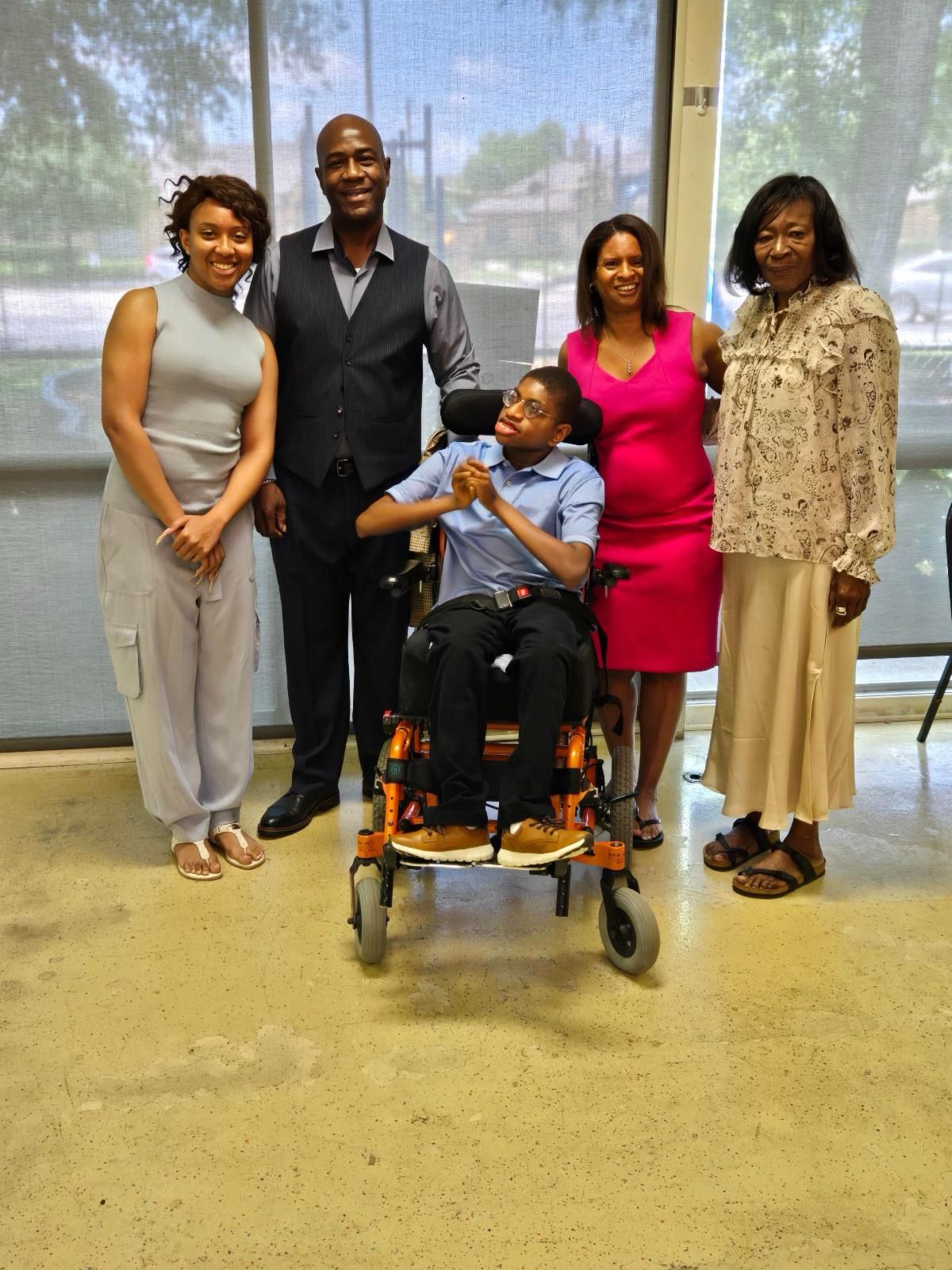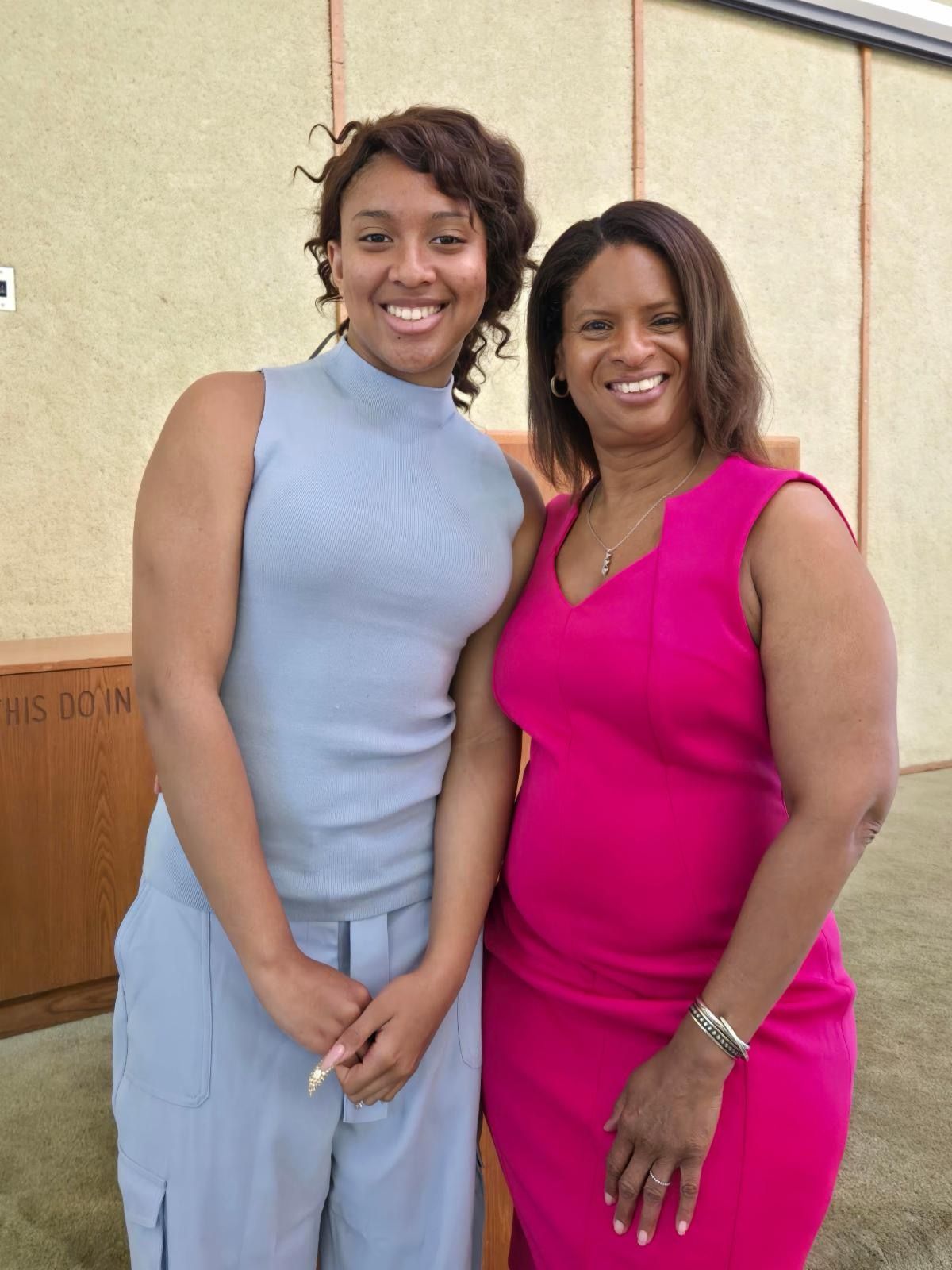About
Teen's Ministry
|
What’s at St. John’s for Teens?
Helping Others
Teen Ministry Houston: Why Small Church Youth Groups Build Stronger Faith
Last week, a Houston mom asked me a question I hear often: "Don't teens need a big youth group with lots of activities to stay engaged in church?"
Her daughter had been attending a megachurch youth group with elaborate events, professional production values, and hundreds of teenagers. But something felt off. The girl knew lots of people but had no close friends. She attended weekly but felt invisible. She participated in activities but never talked about faith.
That conversation captures what I've learned over years of youth ministry at St. John's Presbyterian Church: bigger isn't always better for teenagers. Sometimes what looks like the obvious choice turns out to be exactly wrong.
Let me tell you what actually helps teenagers grow in faith and why small church youth ministry offers something many Houston families didn't know they were missing.
What Houston Teenagers Actually Need
Walk into most Houston youth group gatherings and you'll find the same formula. Games designed to burn energy. Music loud enough to drown out conversation. A message packaged as entertainment. Snacks. Then everyone goes home.
Nothing inherently wrong with that approach. Teenagers need fun and fellowship. But if that's all they get, something crucial is missing.
Teenagers navigating Houston's pressures need more than activities. They need adults who actually know them. They need friends they can trust with real struggles. They need space to ask hard questions about faith without getting Sunday school answers. They need to see what mature Christian living looks like up close, not from auditorium seating.
You can't manufacture those things with bigger budgets or better programming. They grow naturally in communities small enough for real relationships to form.
The Extended Family Model at St. John's
Our teen ministry operates on a different model than most Houston churches. We're not trying to compete with youth groups that offer elaborate activities every week. We're creating something more valuable: an extended family.
At St. John's, our teenagers don't just know other teenagers. They know adults across every generation. They know the retired engineer who teaches Sunday school. They know the young couple with toddlers. They know the grandmother who's been coming here for forty years. These aren't casual acquaintances. These are people who care about them personally.
Think about what that means for a Houston teenager whose actual extended family lives scattered across the country. Many teens today grow up knowing only their immediate family and peers. They miss out on the wisdom, perspective, and support that comes from relationships with adults at different life stages.
In our church, teenagers experience something closer to how humans lived for most of history. Multiple generations together, caring for each other, sharing life. When a teen faces a tough decision, they have access to adults who've been there. When they struggle with faith questions, they can talk to people whose faith has weathered real storms.
One of our teens recently told me, "At my friend's church, I'm just another face in the youth group. Here, I'm known. People notice when I'm gone. They care about what's happening in my life."
That's not something you can replicate in a crowd of two hundred teenagers.
Confirmation Class: Where Faith Gets Personal
At St. John's, confirmation class marks a turning point in a young person's faith journey. This isn't a checkbox on the way to church membership. It's a serious exploration of what it means to follow Jesus and be part of the Presbyterian tradition.
Recently, two of our elders, Bill and Mary, led our confirmation class. These aren't professional youth workers reading from a curriculum. They're committed Christians who've lived their faith for decades. They brought questions our teenagers were actually asking into conversation with Scripture, theology, and their own experience.
The class met weekly for several months. Teenagers studied Presbyterian beliefs, wrestled with difficult Bible passages, discussed what they really thought about prayer and doubt and suffering. No question was off limits. No struggle was dismissed.
Here's what made it powerful: Bill and Mary knew these kids. They'd watched them grow up. They remembered when they were squirming in the pews as children. They knew their families. That history created safety for honest conversation.
When a teenager admits they're not sure they believe in God anymore, that's terrifying in a large group setting. But in a small class with trusted adults, it becomes an opportunity for real growth. Bill and Mary didn't panic at doubt. They met it with patience, wisdom, and the kind of questions that lead toward deeper faith.
By the time our teenagers stood before the congregation to profess their faith, they weren't just repeating words they'd memorized. They were making public what they'd worked through privately over months of study and discussion.
That's confirmation done right. And it only works in a setting intimate enough for real relationships.
Presbytery Camps and Conferences: Connecting Beyond Our Walls
We're a smaller church, so we're realistic about what we can offer. We can't provide a full calendar of youth events every week. What we can do is connect our teenagers with the broader Presbyterian youth community through presbytery camps and conferences.
The Presbytery of New Covenant, comprised of Presbyterian churches covering southeast Texas, runs a strong youth ministry. They organize camps, retreats, and conferences that bring Presbyterian young people together from across the Houston area. Our teenagers participate regularly in these events.
Why does this matter? Because faith formation needs both depth and breadth. They get depth at St. John's through close relationships and serious teaching. They get breadth at presbytery events by meeting other Presbyterian teenagers and experiencing different worship styles and teaching approaches.
One of the highlights each year is the Youth Conclaves, weekend retreats actually led by the teenagers themselves. High school students plan sessions, lead discussions, and help younger teens grow as disciples. These aren't adults talking at kids. These are peers helping peers discover what following Jesus looks like.
Our teens come back from these retreats changed. They've made friends from other churches. They've discovered they're not alone in their faith questions. They've seen teenagers their age taking leadership in ministry. They've experienced worship and teaching that resonates differently than what happens at St. John's.
Then they bring that energy and those insights back to our congregation. They share what they learned. They lead youth Sunday services. They tell us about the friends they made and the ways they experienced God.
This combination of deep roots at St. John's and wide connections through presbytery creates healthy balance. They're anchored in a community that knows them while connected to a larger movement of young Presbyterians.
The Presbytery's Commitment to All Teens
I should mention something important about our presbytery. The Presbytery of New Covenant has worked hard to ensure all young people feel welcome and supported at our events.
Why bring this up? Because it reflects something essential about Presbyterian youth ministry. We recognize that the teenage years are when identity formation happens. Young people are figuring out who they are, who God made them to be. That process includes questions about identity, sexuality, relationships, and how faith connects to all of it.
Our presbytery understands that teenagers need to feel a sense of belonging and support as they work through these questions. They need safe spaces to explore faith without worrying about rejection. They need adults who will listen to their struggles without dismissing or judging.
At St. John's, we share that commitment. Our teenagers know they can bring real questions and real struggles to us. We're not going to give them pat answers or shut down hard conversations. We're going to walk with them as they figure out what following Jesus means for their actual lives.
What Teenagers Miss in Large Youth Groups
I don't say this to criticize big youth groups. Many of them do excellent work. But it's worth being honest about what gets lost when numbers grow too large.
In a youth group of a hundred or more teenagers, even great leaders can't know everyone personally. Some kids thrive in that setting. Extroverts who easily make friends do fine. Athletes or musicians with built-in social status connect naturally.
But what about the quieter teenagers? The ones who take longer to open up? The ones struggling with anxiety or depression? The ones whose families are falling apart but who've learned to hide it well?
In large groups, these teenagers slip through cracks. Leaders can't notice subtle changes in behavior. Friends can't tell when something's really wrong because they don't know each other well enough. Activities stay surface-level because you can't create space for vulnerability when you're managing a crowd.
I've talked with enough families who've left megachurch youth groups to recognize the pattern. Their teenagers were attending regularly but not growing spiritually. They knew lots of people but had no real friends. They showed up for fun but never engaged with faith seriously.
Parents often don't realize what's missing until they find something different. Then they see their teenager actually discussing faith at dinner. Actually bringing friends from church over. Actually wrestling with what they believe instead of just showing up.
The Gift of Being Known
Here's what makes small church youth ministry special: teenagers are truly known.
At St. John's, our youth volunteers notice when a teenager seems down. Our Sunday school teachers remember what's happening in their lives and follow up. Our congregation prays for them by name and actually knows why they're praying.
When a teenager accomplishes something worth celebrating, the whole church knows about it. When they struggle, people check in. When they're gone for a few weeks, someone reaches out to their family.
This matters because adolescence is hard. Teenagers face enormous pressure from school, social media, college applications, family expectations. Many Houston teenagers feel like they're performing constantly but never measuring up.
In that context, being truly known by a community that loves you regardless of performance becomes radical. Our teenagers don't have to earn acceptance at St. John's. They already have it because they're part of the family.
One of our high schoolers told me, "My friends at school don't really know me. They know the version of me I show them. At church, people know the real me, including the messy parts, and they still want me around."
That's the gift of small church youth ministry. You can't fake it. You can't manufacture it with better programming. It only emerges when a community is small enough for real relationship to happen.
Adults Who Model Faith in Real Time
Big youth groups often isolate teenagers from the rest of the church. They have their own worship service, their own activities, their own space. The goal is giving them something specifically designed for their age group.
But something important gets lost in that isolation. Teenagers need to see what mature Christian faith looks like up close. They need models of what it means to follow Jesus through different seasons of life.
At St. John's, our teenagers worship alongside everyone else on Sunday mornings. They sit next to retired couples and young families and middle-aged singles. They hear the same sermon. They share the same communion. They participate in the same prayers.
This means they watch how different people express faith. They see the grandmother who always has a kind word for everyone. They notice the business owner who lives generously. They observe the teacher who serves on mission trips every summer. They learn from the couple who adopted children from foster care.
These examples shape understanding of what following Jesus actually looks like in daily life. Faith isn't just youth group excitement. It's steady faithfulness through decades. It's choosing generosity over comfort. It's serving others quietly. It's staying committed to community even when it's inconvenient.
Teenagers absorb these lessons simply by being around mature Christians regularly. No curriculum teaches it. It's caught more than taught.
Service That Actually Matters
Many youth groups focus primarily on fun and fellowship. Service projects happen occasionally, usually framed as opportunities for the teenagers rather than genuine responses to real needs.
At St. John's, we approach it differently. Our teenagers participate in the same mission work as everyone else. They help with Braes Interfaith Ministries food distribution. They serve meals. They work in our community garden and see the produce go to families who need it. They contribute to our support of Presbyterian Children's Homes and Services and our Uganda orphanage partnership.
This isn't occasional service. It's ongoing ministry. And it's not designed primarily for the teenagers' benefit. It's genuine response to Jesus's call to serve others.
What I've noticed over the years: teenagers rise to real responsibility. Give them meaningful work that actually helps people, and they'll surprise you with their commitment and creativity. Treat youth ministry as primarily entertainment with occasional service projects, and you'll get exactly what you've signaled matters.
Our teenagers know their participation matters. When they help distribute food, they're meeting real needs. When they work in the garden, they're providing fresh vegetables to families facing food insecurity. When they support our global missions, they're changing lives.
That sense of purpose shapes how they understand faith. Following Jesus isn't just about believing right things or having good feelings. It's about loving neighbors in practical ways. It's about using whatever resources and gifts you have to serve others.
The Questions Large Churches Can't Answer
Before visiting St. John's, ask yourself what you're really looking for in youth ministry.
Do you want elaborate programs and constant activities? Megachurches excel at that. They have budgets and staff to create impressive youth ministries with something happening several times a week.
Or do you want your teenager to be personally known by adults who care about their spiritual growth? Do you want them to wrestle with real faith questions in safe settings? Do you want them to experience genuine Christian community across generations?
Those things happen more naturally in smaller churches where relationship is built into the structure rather than something you try to add through small groups within the large group.
Here are specific questions to ask when evaluating youth ministries:
How many teenagers attend regularly? If the answer is over fifty, ask how they create opportunities for real relationship. Often they don't. They count on the energy of the crowd to create excitement, but excitement isn't the same as depth.
Who leads youth ministry? Are they paid staff or volunteers from the congregation? Both models can work, but volunteer leaders from the congregation often have deeper investment in teenagers' long-term spiritual growth. They're not moving on to the next church job in a few years.
Do teenagers worship with the whole congregation or separately? Again, both can work, but worshiping separately means missing out on intergenerational connection and the modeling that comes from seeing mature Christians express faith.
What opportunities exist for teenagers to serve in meaningful ways? Some youth groups focus on fun with occasional service projects. Others integrate service into the regular rhythm of youth ministry. The difference matters.
How does the church handle doubt and difficult questions? Some places shut down doubt quickly with pat answers. Others create space for honest wrestling. Teenagers need the latter.
Do teenagers have relationships with adults beyond youth leaders? In small churches, this happens naturally. In large churches, it requires intentional effort that doesn't always happen.
What to Expect at St. John's Youth Ministry
Let me be direct about what we offer and what we don't.
We don't have youth group meetings every week with games and snacks. We don't have a separate youth worship service with loud music and production values. We don't compete with the elaborate programming some Houston churches offer.
What we do have is youth Sunday school that takes Scripture seriously. Confirmation class that treats teenagers as capable of theological thinking. Presbytery camps and conferences that connect them with other Presbyterian youth. Participation in real mission work that makes actual difference. Most importantly, genuine relationships across generations within a congregation that knows them by name.
Our teenagers attend worship with everyone else on Sunday mornings at 11:00 AM. They participate in the same music, hear the same sermons, share the same communion. They're not isolated in youth ministry. They're integrated into the whole life of the church.
They also connect with the youth Sunday school class and with confirmation preparation. Bill and Mary's recent confirmation class created space for deep engagement with Presbyterian theology and personal faith questions.
Through presbytery events like Youth Conclaves, they experience worship and fellowship with hundreds of other Presbyterian teenagers. They make friends from other churches. They encounter different styles of youth ministry. They see themselves as part of something bigger than just St. John's.
This combination gives them both roots and wings. Roots in a community that knows them deeply. Wings to connect with the broader Presbyterian church and discover their place in God's larger story.
Why Parents Choose St. John's for Their Teenagers
When families with teenagers join St. John's, they usually share similar reasons.
They tried the megachurch youth group model and found it lacking. Their teenager attended regularly but didn't develop close friendships. Activities were fun but faith never got personal. The youth group was too large for leaders to know individual teenagers well.
Or they're Houston transplants from smaller cities where church meant genuine community. They're looking for that same experience for their children in a city where everything defaults to bigger and busier.
Or they've watched their teenagers struggle with anxiety, depression, or identity questions and recognized they need more than entertainment-focused youth ministry. They need adults who will walk with them through hard seasons.
These parents aren't looking for the most impressive youth ministry in Houston. They're looking for the one that will actually help their teenagers grow in faith and character. They're looking for community that will know their children and care about their spiritual development.
At St. John's, we can't offer everything. But what we do offer, we do with genuine commitment. We'll know your teenager's name. We'll notice when they're struggling. We'll celebrate their accomplishments. We'll create space for their questions and doubts. We'll model what mature Christian faith looks like across different life stages. We'll include them in real ministry that matters.
That's not flashy. But it's real. And for many Houston families, real beats flashy every time.
The Long View of Youth Ministry
I've been in ministry long enough to see the fruit of different approaches to youth ministry.
Teenagers who grew up in youth groups focused primarily on entertainment often drift away from church after high school. They enjoyed the activities, but faith never got deep enough to sustain them through college challenges and young adult questions.
Teenagers who grew up in genuine Christian community, where they were known and challenged and supported, tend to stay connected to the church. Not always the same congregation, but they understand church as essential to following Jesus rather than optional programming.
The difference isn't about fun versus boring. Both groups had positive experiences as teenagers. The difference is depth. One group participated in activities. The other belonged to community.
At St. John's, we're playing the long game. We're not trying to win the competition for coolest youth group. We're trying to form disciples who will follow Jesus faithfully through all the seasons of life ahead.
That means sometimes being less impressive than what other churches offer. It means saying no to constant activity so we can say yes to deeper relationship. It means treating teenagers as capable of serious faith rather than just consumers of youth programming.
Twenty years from now, our teenagers will remember specific conversations that shaped how they think about God. They'll remember adults who believed in them when they struggled to believe in themselves. They'll remember feeling genuinely known by a community that loved them.
Those memories become the foundation for lifelong faith. That's what we're building at St. John's.
Finding Youth Ministry That Fits
Not every teenager thrives in the same environment. Some need the energy and excitement of large youth groups. Others need the intimacy and depth of smaller settings.
If your teenager is naturally outgoing, easily makes friends, and thrives in crowds, they might do fine in a large youth group. If they're quieter, take longer to open up, or struggle with anxiety, smaller settings usually serve them better.
Consider also your family's values. If you want your teenager to experience faith as primarily individual and emotional, large youth groups with contemporary worship often emphasize that. If you want them to experience faith as communal and historical, connecting them to centuries of Christian tradition, churches like St. John's offer that.
There's no single right answer for every teenager. But there is a right answer for your teenager. Pay attention to how they respond to different settings. Watch whether they're just participating in activities or actually growing in faith. Notice whether they're making genuine friends or just floating through a crowd.
Your teenager needs community that will help them become who God created them to be. Sometimes that's found in unexpected places.
The Invitation
If you're looking for youth ministry in Houston that treats your teenager as a whole person rather than just another number in the youth group, come visit St. John's Presbyterian Church.
We're located at 5020 West Bellfort Avenue in southwest Houston. Worship begins at 11:00 AM on Sunday mornings. Your teenager will worship alongside people of all ages and experience community across generations.
Talk with our members after church. Ask them about confirmation class. Ask about presbytery camps and conferences. Ask what difference it makes to be part of a smaller congregation where everyone knows your name.
Call our church office at 713-723-6262 or email office.sjpc@gmail.com with questions about youth ministry. We'll connect you with parents who can share their experience and with teenagers who can tell you what St. John's means to them.
No pressure. No hard sell. Just an invitation to discover whether the extended family model of youth ministry might be exactly what your teenager needs.
In a city like Houston where bigger usually seems better, we're offering something different. We're offering community that actually knows your teenager. That sees their potential. That walks with them through questions and struggles. That models what mature Christian faith looks like up close.
That's youth ministry at St. John's Presbyterian Church. It might not be what you expected. But it might be exactly what you've been searching for.
St. John's Presbyterian Church
5020 West Bellfort Avenue
Houston, TX 77035
(713) 723-6262
Sunday Worship: 11:00 AM
Come experience youth ministry built on genuine relationships, serious faith formation, and the kind of extended family community that helps teenagers become faithful disciples of Jesus Christ. Your teenager deserves more than entertainment. They deserve to be truly known.
Further exploration
Many people wonder
what is the difference between Presbyterians and Baptists? ("I understand that question, having been raised in a Southern Baptist Church in a small town in Mississippi," says Pastor Jon.
Maybe you wonder what a sermon is like at St. John's?
Here is a sermon for you to read.
Or, perhaps you would like to consider how to experience Intimate Worship in a Big City.
Scouts
St. John’s sponsors Girl Scouts (Troop 21174, Delta Sky Service Unit, and Troop 21151) and Boy Scouts (Pack 8 and Troop 688). They meet in the Scout Room, Building One.




